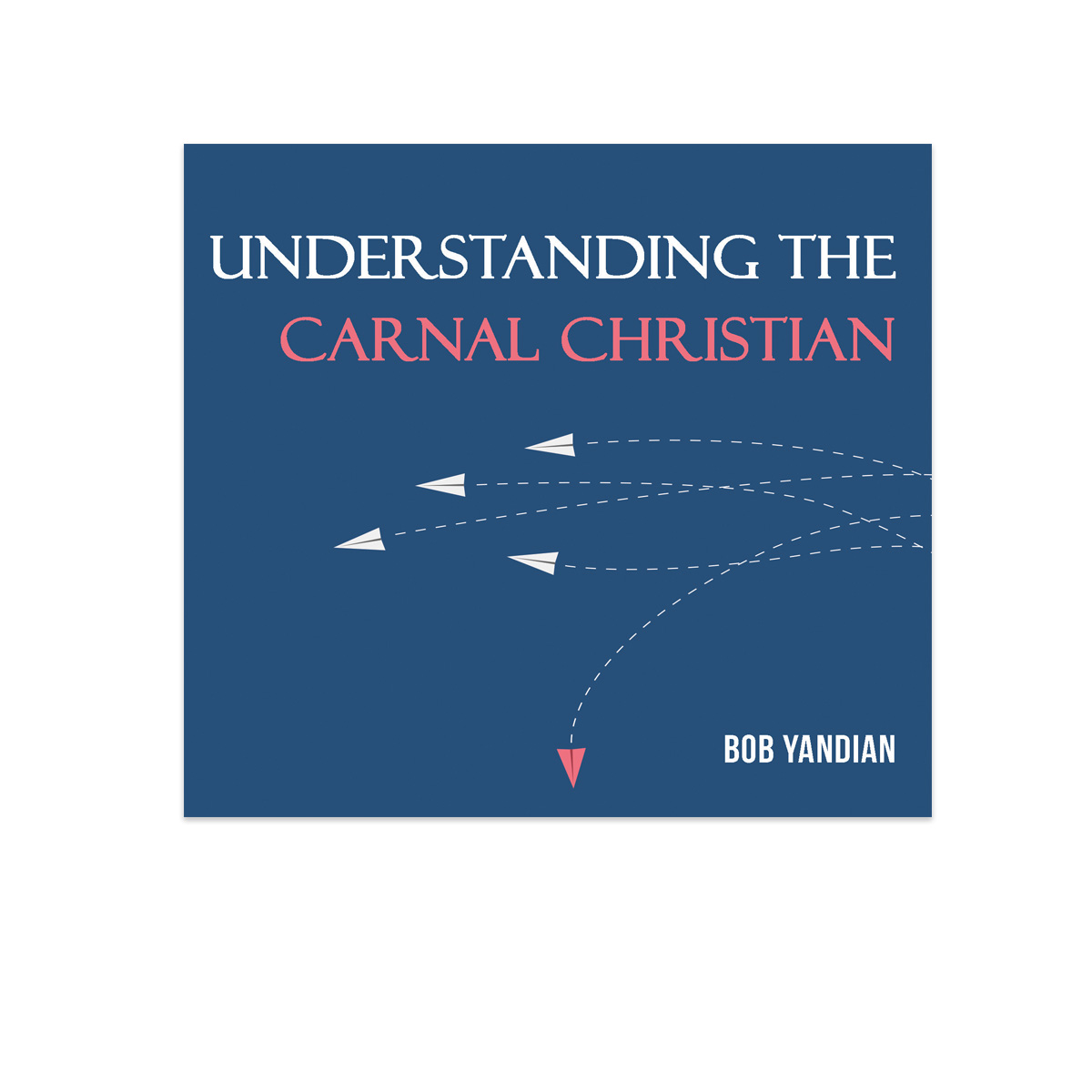Relationship vs. Fellowship With God
Bob Yandian
You cannot successfully live the Christian life until you first know who you are in Christ. We can think of our relationship with God as positional truth and our fellowship with God as temporal truth.
What Is Positional Truth?
God sees the believer as complete; He sees us in Christ. We are seated with Him in heavenly places. That is a positional truth. Positionally, we are sanctified. We have wisdom. We have the mind of Christ. In fact, positionally, we have every answer that we will ever need in this life. Yet, day by day, we are learning to catch up with who we really are in Christ. we are righteous on the inside, but getting that righteousness from the inside to the outside is temporal truth, also known as sanctification.
I want to present a few of the many things that belong to the believer eternally, the moment he gets born again:
1. We have been given everlasting life.
“And this is the testimony: that God has given us eternal life, and this life is in His Son.” (1 John 5:11)
“And I give them eternal life, and they shall never perish; neither shall anyone snatch them out of My hand.” (John 10:28)
“For God so loved the world that He gave His only begotten Son, that whoever believes in Him should not perish but have everlasting life.” (John 3:16)
2. We have been made righteous.
“For He made Him who knew no sin to be sin for us, that we might become the righteousness of God in Him. “ (2 Corinthians 5:21)
“But of Him you are in Christ Jesus, who became for us wisdom from God—and righteousness and sanctification and redemption— “ (1 Corinthians 1:30)
3. We have an eternal destiny.
“Having predestined us to adoption as sons by Jesus Christ to Himself, according to the good pleasure of His will.” (Ephesians 1:5)
We have an eternal sonship, an eternal heirship, an eternal priesthood, an eternal kingship, we are eternally sanctified. All of these things belong to us eternally.
Carnal Indicates a Condition of Fellowship
It is possible to be out of fellowship with the Lord, but still maintain a relationship with Him. 1 Corinthians 3:1 says, “And I, brethren, could not speak to you as to spiritual people but as to carnal, as to babes in Christ.” Notice the terms “carnal” and babes.” Immediately following these terms is the statement, “in Christ.” “Carnal” indicates a condition of fellowship, but “in Christ” refers to a relationship. Carnal Christians are children of God, but they are out of fellowship with the Lord. Sin does not separate us from our relationship with the Lord; sin separates us from our fellowship with Him
The way we enter into relationship is Acts 16:31 and Romans 10:9-10. The Acts passage says, “…Believe on the Lord Jesus Christ, and you will be saved…” Romans tells us that if we believe in our hearts that God raised Jesus from the dead and confess with our mouths that Jesus is Lord and Savior, we will be saved. The way we enter into relationship with God is through the new birth - receiving Christ as our Savior.
Christianity is not morality. Some people confuse the two. A person is not a great Christian because he quit smoking or drinking or taking drugs; every day sinners quit doing these things. Spirituality is not morality. Spirituality should produce morality, but spirituality, in and of itself, is not morality. There are many moral sinners, but being moral does not make them spiritual. The thing that makes an individual spiritual is being led by the Holy Spirit and by the Word of God. They are led by their own conscience; they are led by their own will.
The actions of sin do not separate us from eternal life; they separate us from fellowship with God. 1 John 1:9 was not written to sinners; it was written to believers as the means of getting back into fellowship with God. 1 John 1:9 tells us that, “if we confess our sins, God is faithful and just to forgive us of our sins and to cleanse us from all unrighteousness.” Fellowship is temporal. In fellowship we are called “spiritual.” Out of fellowship we are called “carnal.” The way to get out of fellowship is by sinning, and the way we get back into fellowship is by confessing that sin.
According to 1 Corinthians chapter 3, when we are spiritual we are laying aside treasure in Heaven and the treasure we are laying aside is gold, silver, and precious stones. But, when we are out of fellowship with the Lord, we face discipline. God does not discipline sinners; He punishes sinners. You are not to punish your children; you are to discipline your children. Punishment has an air of wrath or anger about it. God never chastens us out of wrath or displeasure. God chastens us out of a motive of love.
“My son, do not despise the chastening of the Lord, nor be discouraged when you are rebuked by Him; For whom the Lord loves He chastens, and scourges every son whom He receives. If you endure chastening, God deals with you as with sons; for what son is there whom a father does not chasten? But if you are without chastening, of which all have become partakers, then you are illegitimate and not sons. Furthermore, we have had human fathers who corrected us, and we paid them respect. Shall we not much more readily be in subjection to the Father of spirits and live? For they indeed for a few days chastened us as seemed best to them, but He for our profit, that we may be partakers of His holiness. Now no chastening seems to be joyful for the present, but painful; nevertheless, afterward it yields the peaceable fruit of righteousness to those who have been trained by it.” (Hebrews 12:5-11)
Notice that these verses are addressed to believers. We are children of God, but when we sin, we are still reproved and disciplined by the Word of God. We do not lose eternal life because we miss it and sin. Neither do we lose our righteousness because of sin.
Sin and Grace
“Moreover the law entered that the offense might abound. But where sin abounded, grace abounded much more.” (Romans 6:1)
The word “entered” in the Greek is an acting term. It refers to a minor actor who walked on stage until the major actor came on. Once the major actor came on , the minor actor left. In this verse, the law is described as a minor actor, and the minor actor came on to expose the villain.
The word “offense” is a reference to the sin nature. The “much more abounding” is the major actor walking on stage. The law left the stage because the major actor came on. Galatians 3:19 says, “What purpose then does the law serve? It was added because of transgressions, till the Seed should come to whom the promise was made; and it was appointed through angels by the hand of a mediator.” The seed is the Lord Jesus Christ. The law came by Moses, but grace and truth came by the Lord Jesus Christ.
Romans 5:20 tells us that if we sin, grace abounds. There are some people who hear about the grace of God and have the attitude that says, “Well since grace abounds where sin abounds, I will just go out and live a dirty old life just so grace will abound. After all, how would I ever know God’s forgiveness I didn’t run out and sin? In fact, I think I will just do anything i feel like doing because God’s grace will abound!”
Two questions about sin are answered in Romans chapter 6. “What shall we say then? Shall we continue in sin that grace may abound? “ (Romans 6:1) In other words, “Can we habitually sin and grace continually abound toward us? Should I run out and continually sin because the more I sin the more grace will abound?” Paul says in verse 2, "Certainly Not.” Paul says, “No! Absolutely not! Don’t do it!” He continues to answer the first question in verses two through fourteen. The second question appears in verse 15. Paul asks, “What then? Shall we sin because we are not under the law but under grace? Certainly not!” Notice, he does not ask, “Should we continue to sin?” He asks, “Should we sin?” In other words, the first questions is “Can I habitually sin?” The answer is “No.” The second question is, “Can I sin once in a while?” The answer again, is “No.”
Everyone has committed a sin since becoming a Christian, but the point is that you are not purposefully sinning. The object of the Christian life is to not sin. 1 John 2:1 says, “My little children, these things I write to you, so that you may not sin.” The purpose of the Word of God is to keep the believer from sinning. God does not want us to sin, but notice what this verse goes on to say, “And if anyone sins, we have an Advocate with the Father, Jesus Christ the righteous.” The object of the Christian walk is not, “How much can I sin?” The object of the Christian walk is, “How can I keep from sinning?”






